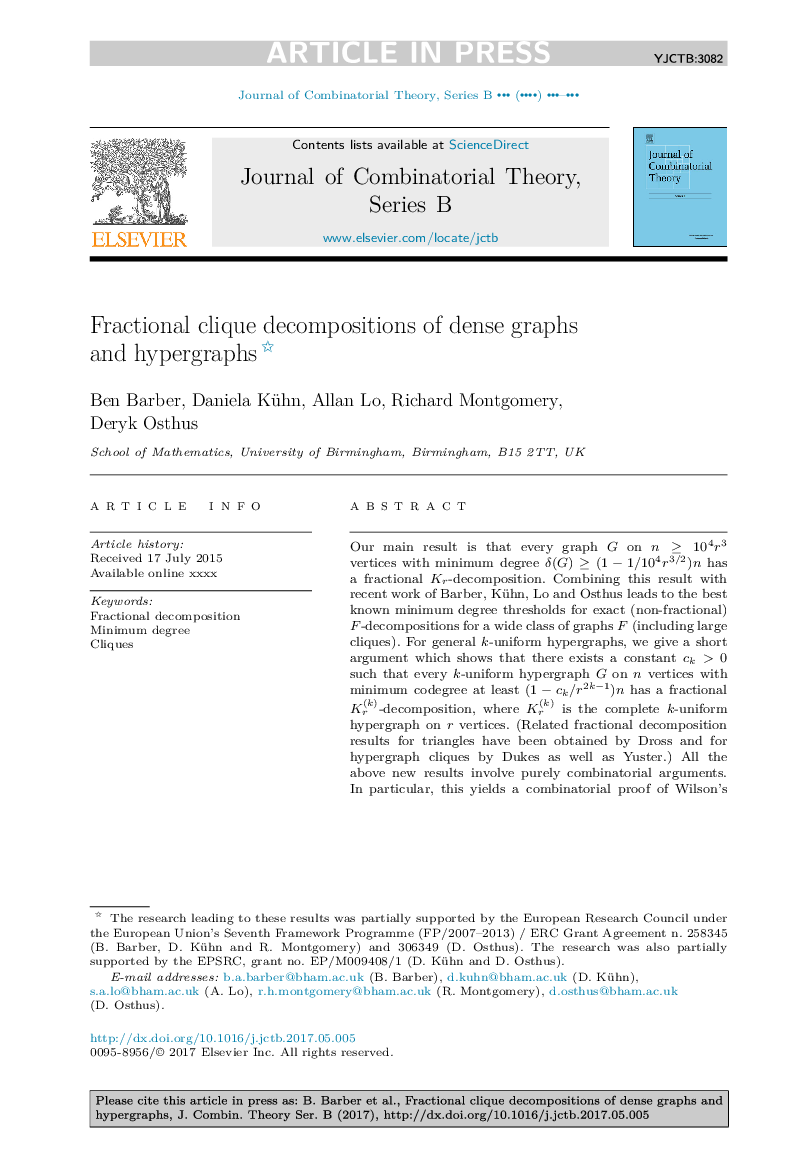| Article ID | Journal | Published Year | Pages | File Type |
|---|---|---|---|---|
| 5777585 | Journal of Combinatorial Theory, Series B | 2017 | 39 Pages |
Abstract
Our main result is that every graph G on nâ¥104r3 vertices with minimum degree δ(G)â¥(1â1/104r3/2)n has a fractional Kr-decomposition. Combining this result with recent work of Barber, Kühn, Lo and Osthus leads to the best known minimum degree thresholds for exact (non-fractional) F-decompositions for a wide class of graphs F (including large cliques). For general k-uniform hypergraphs, we give a short argument which shows that there exists a constant ck>0 such that every k-uniform hypergraph G on n vertices with minimum codegree at least (1âck/r2kâ1)n has a fractional Kr(k)-decomposition, where Kr(k) is the complete k-uniform hypergraph on r vertices. (Related fractional decomposition results for triangles have been obtained by Dross and for hypergraph cliques by Dukes as well as Yuster.) All the above new results involve purely combinatorial arguments. In particular, this yields a combinatorial proof of Wilson's theorem that every large F-divisible complete graph has an F-decomposition.
Keywords
Related Topics
Physical Sciences and Engineering
Mathematics
Discrete Mathematics and Combinatorics
Authors
Ben Barber, Daniela Kühn, Allan Lo, Richard Montgomery, Deryk Osthus,
